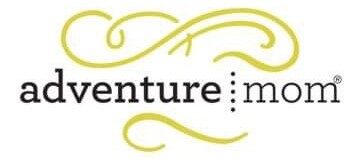As an Adventure Mom, it’s no surprise that my family enjoys participating in sports.
Both of my boys have played multiple sports since elementary school. Like every other parent in the stands, the risk of an injury is always a concern in the back of my mind.
Thankfully we’ve been lucky to avoid that fate, so far.
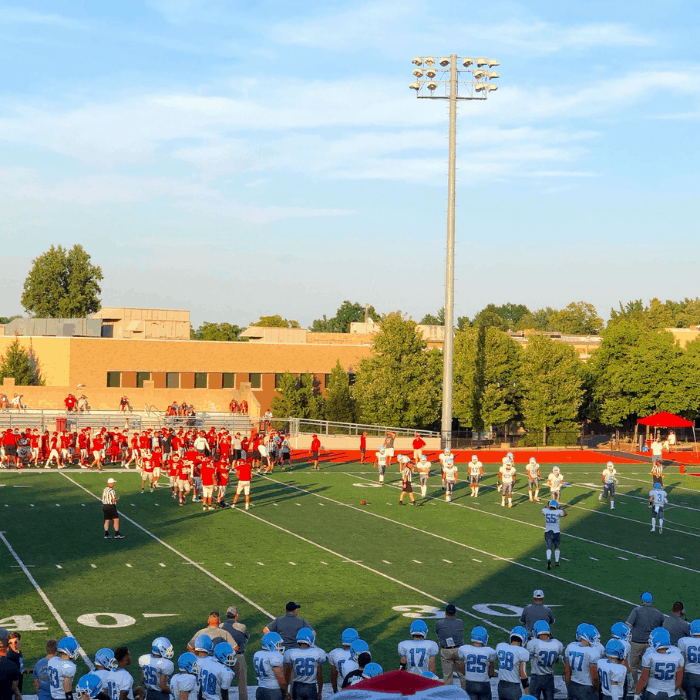
However, over the years, I have witnessed a variety of injuries – some minor and others season-ending.
None have seemed as devastating to the athlete as a torn anterior cruciate ligament or ACL.
So, when I noticed recently that St. Elizabeth Healthcare was offering an ACL Injury Prevention Program, I wanted to learn more.
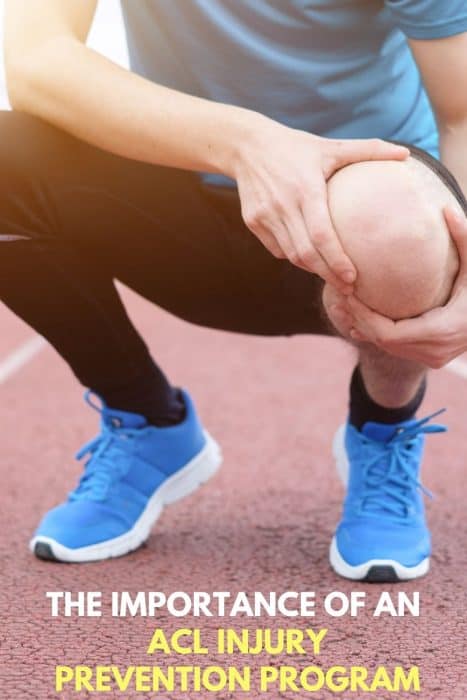
This article is brought to you in partnership with St. Elizabeth Healthcare.
What is the ACL & Why is Injury Prevention Important?
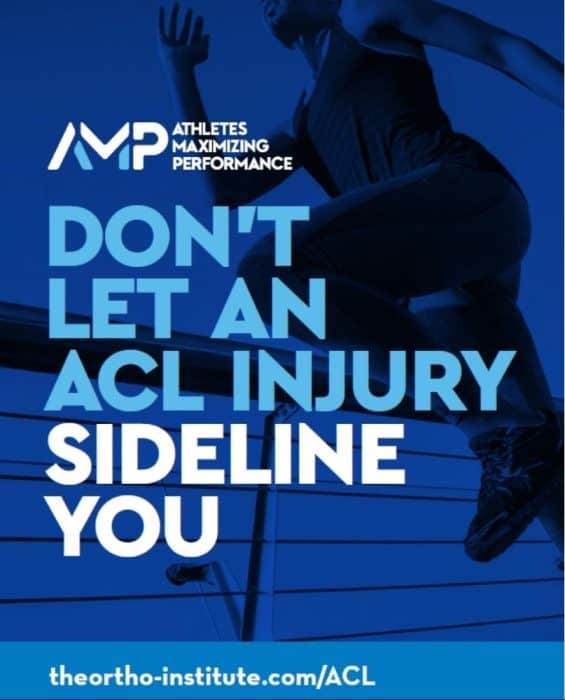
What is the ACL?
The ACL is a ligament that is in the middle of the knee connecting the femur (or thigh bone) to the tibia (or shin bone). It prevents your shin bone from sliding out in front of the thigh bone.
Simply put, an ACL injury is the result of the over-stretching or tearing of the ACL in the knee. Many athletes will hear or feel a “pop” in their knee when this occurs.
Can you believe there are approximately 250,000 ACL surgeries performed each year in the United States?
A student-athlete has a 1 in 100 chance of tearing their ACL during practice or a game. And 75% of tears are from non-contact injuries!
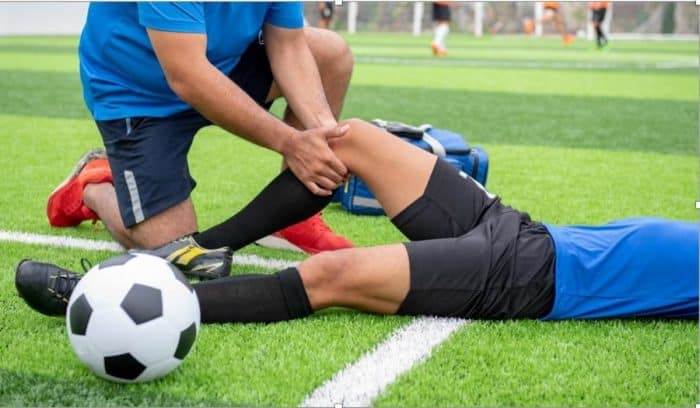
What are non-contact injuries?
Non-contact injuries can be the result of any of the following:
- Pivoting away from a defender on the soccer field
- Jumping to shoot a basket and landing with all your body weight on the same leg
- Twisting with one foot planted during a dance routine
- Cutting on a route pattern on the football field
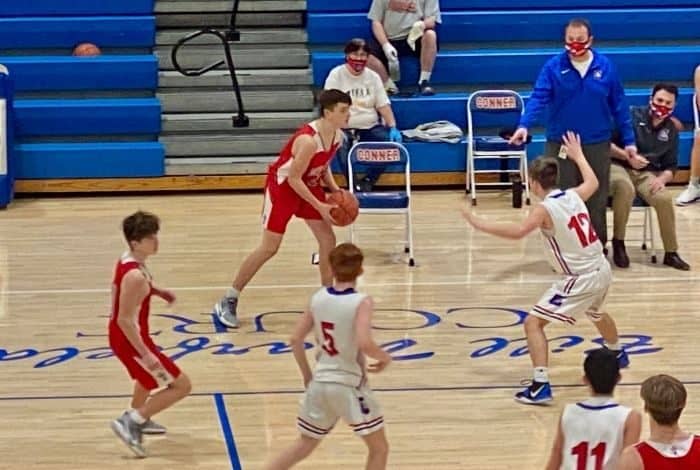
How can an ACL prevention program help?
Many ACL injuries are preventable. It takes strength training and sports training to ensure an athlete’s movements are completed correctly and athletes understand proper techniques.
There are quite a few studies out there that indicate that an ACL injury prevention program can significantly reduce an athlete’s risk of injury.
The St. Elizabeth Sports Medicine department provides over 40 athletic trainers to 23 different high schools in Northern Kentucky.
Initially, the Orthopaedic Institute at St. Elizabeth developed an ACL Injury Prevention Program to offer to their partner schools – but ultimately ended up putting the entire program on their website for use by all – for FREE!
The focus of the program is to help ensure athlete movements are completed accurately and
athletes understand the proper techniques that enable them to move more safely with less risk of injury using various training interventions.
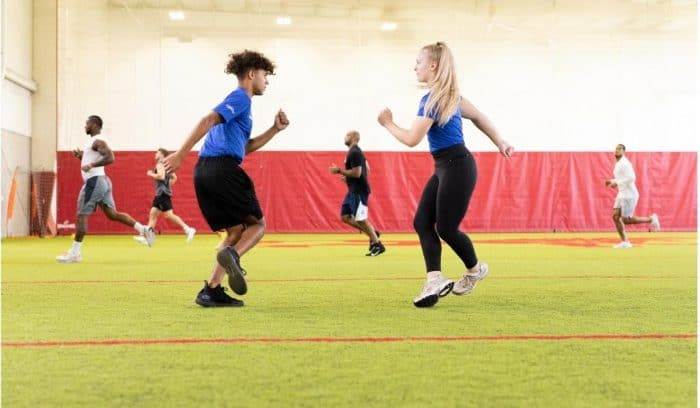
The training programs are intended for year-round use and are geared towards weekend warriors as well as high school, college and professional athletes.
The program consists of a Pre-Season Program and an In-Season Maintenance Program.
The Pre-Season Workout Program is divided into three two-week phases, spanning an overall six-week time-period. Athletes should adhere to the phases and complete the exercises as indicated in the training videos.
The In-Season Maintenance program should be utilized regardless of sport. This program helps to maintain the advances made by athletes in the off-season.
It is critical to preserving muscle strength and flexibility throughout the season when an athlete is more likely to experience fatigue.

Additional Statistics to be Aware of:
50% of ACL injuries occur in athletes between the ages of 15 & 25.
It’s important to note that female athletes are 4 to 6 times more likely to experience a serious knee injury or ACL tear than male athletes.
High school girls have a 1 in 100 chance of tearing their ACL and that number shrinks in college to 1 in 10.
Take Action!
I encourage parents as well as their athletes (and weekend adventure seekers) to check out the ACL pages within the St Elizabeth website.
In addition to housing the ACL Injury Prevention Program for use, there is a lot of good information and videos that identify why each program and phase is important.

